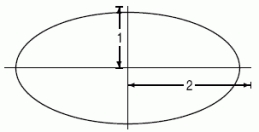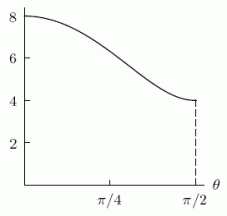Exam 7: Integration
Exam 1: A Library of Functions110 Questions
Exam 2: Key Concept: the Derivative92 Questions
Exam 3: Short-Cuts to Differentiation175 Questions
Exam 4: Using the Derivative108 Questions
Exam 5: Key Concept- the Definite Integral62 Questions
Exam 6: Constructing Antiderivatives90 Questions
Exam 7: Integration179 Questions
Exam 8: Using the Definite Integral104 Questions
Exam 9: Sequences and Series70 Questions
Exam 10: Approximating Functions Using Series71 Questions
Exam 11: Differential Equations135 Questions
Exam 12: Functions of Several Variables93 Questions
Exam 13: A Fundamental Tool- Vectors107 Questions
Exam 14: Differentiating Functions of Several Variables129 Questions
Exam 15: Optimization- Local and Global Extrema77 Questions
Exam 16: Integrating Functions of Several Variables76 Questions
Exam 17: Parameterization and Vector Fields86 Questions
Exam 18: Line Integrals78 Questions
Exam 19: Flux Integrals and Divergence52 Questions
Exam 20: The Curl and Stokes Theorem84 Questions
Exam 21: Parameters, Coordinates, Integrals23 Questions
Select questions type
If we approximate with what value of b could we use to estimate the value of with an error of less than 0.01? Of the following, select the smallest value of b that will work.
Free
(Multiple Choice)
4.7/5  (38)
(38)
Correct Answer:
B
Suppose that a computer takes seconds to add two numbers together, and it takes seconds to multiply two numbers together.The computer is asked to integrate the function from 0 to 1 using left hand sums with n divisions.As a function of n, let T(n)denote the time used by the computer to do the calculation.Compute T(n).(The computer figures x2 as x · x.)
Free
(Multiple Choice)
4.8/5  (35)
(35)
Correct Answer:
A
Find the area between and g(x)= x for x 0.Round to 3 decimal places.
Free
(Short Answer)
4.8/5  (24)
(24)
Correct Answer:
0.807
Use the table of antiderivatives to determine if the following statement is true.
(True/False)
4.9/5  (37)
(37)
Suppose that as a storm dies down, its rainfall rate (in inches/hour)is given by for 0 t 2, where t is the number of hours since the point of heaviest rainfall.What is the average rainfall rate over these two hours? Round your answer to 3 decimal places.
(Essay)
4.7/5  (29)
(29)
Derive the formula for the area of a circle of radius R using trigonometric substitution.
(Essay)
4.7/5  (39)
(39)
Use the Fundamental Theorem to evaluate the definite integral .Reduce fractions and leave them in the form "A/B".
(Essay)
4.8/5  (27)
(27)
Consider the ellipse pictured below:  The perimeter of the ellipse is given by the integral .It turns out that there is no elementary antiderivative for the function , and so the integral must be evaluated numerically.A graph of the integrand f( )is shown below.
The perimeter of the ellipse is given by the integral .It turns out that there is no elementary antiderivative for the function , and so the integral must be evaluated numerically.A graph of the integrand f( )is shown below.  Calculate the right sum that approximates the definite integral with N = 4 equal divisions of the interval.Round to 4 decimal places.
Calculate the right sum that approximates the definite integral with N = 4 equal divisions of the interval.Round to 4 decimal places.
(Short Answer)
4.9/5  (30)
(30)
Showing 1 - 20 of 179
Filters
- Essay(0)
- Multiple Choice(0)
- Short Answer(0)
- True False(0)
- Matching(0)